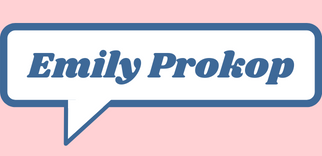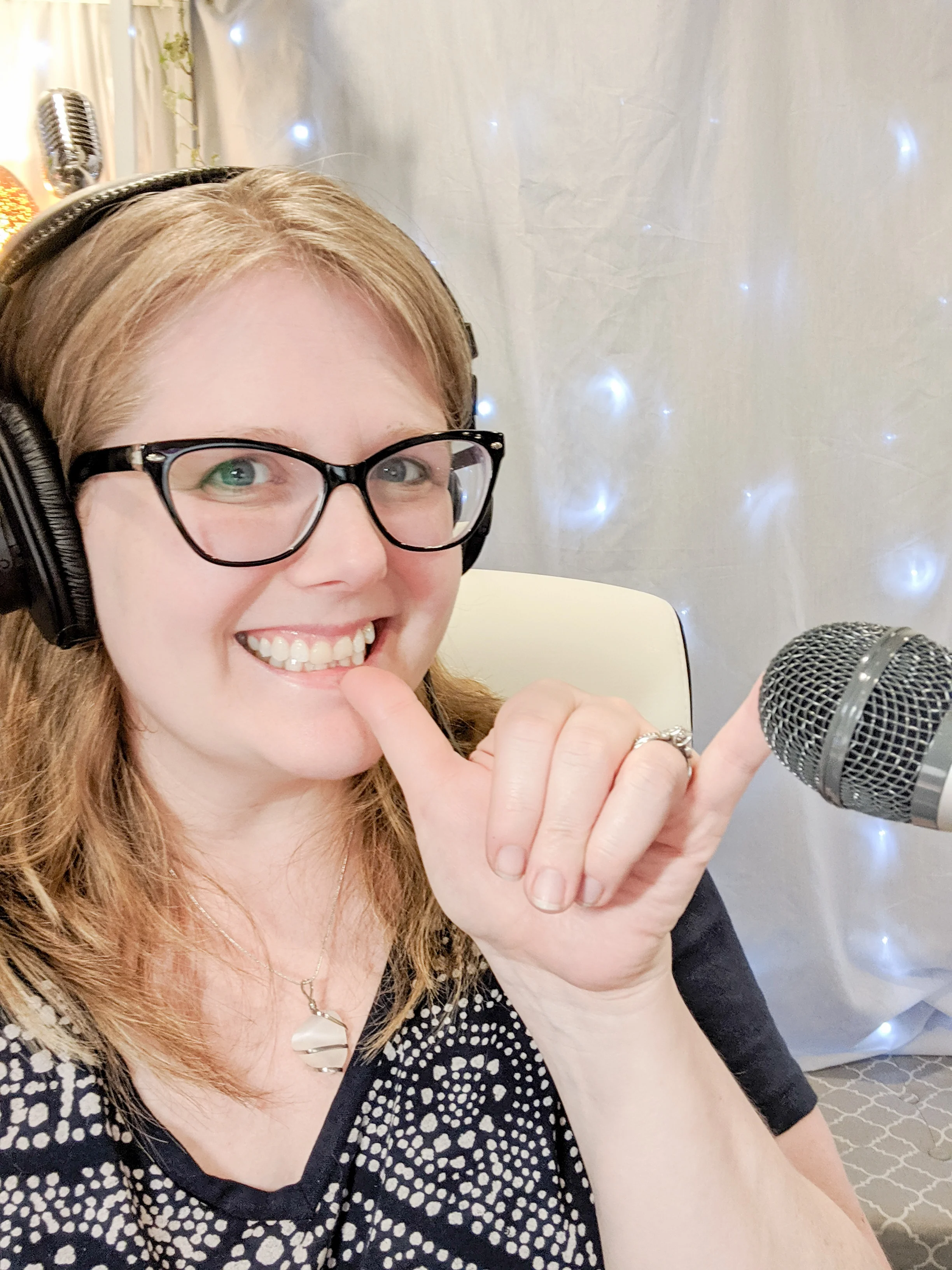While content should be your No. 1 concern when it comes to your podcast, a very close second should be the quality of your sound.
While there are exceptions to this rule, for the most part, this is what separates those with “good enough” podcasts from those with the “wow-you-have-to-listen-to-this” podcasts.
If this is your first time behind a microphone, it can seem intimidating at first, but I promise you’ll be saving yourself hours of headaches if you can get your sound set up so you’re recording great sound (instead of having to fix it later).
Let’s Talk Microphones
If you haven’t bought a microphone yet, these are the three I recommend for beginning podcasters. They sound great with most voices and because they are Dynamic microphones*, you don’t have to worry as much about background noise being picked up.
Here are my three favorite microphones for beginning podcasters:
I also recommend getting a boom arm and pop filter.
Many podcasters also start out with Blue Yetis. The only reason I don’t necessarily recommend this if you’re starting out is there’s some tweaking involved to get great sound with the Blue Yeti.
*Confused about Dynamic vs. Condenser microphones? Check out my Glossary of Podcasting Terms.
Location, Location, Location
Where you record is almost as important as how you’re recording. Even though the microphones I recommend can be fairly forgiving when it comes to room noise, any help you can give yourself to get good sound before editing will be a time-saver (and ear-saver) later.
Pick a location with plenty of soft surfaces. Bathrooms and kitchens have a lot of hard surfaces, for example, and don’t offer great sound for recording.
Have you ever thought you sounded better when you were singing in the shower? That’s because the hard surfaces in bathrooms are great acoustically for hearing yourself so you can quickly adjust your pitch (sorry, my choir-geek just came out a bit).
But that sort of sound projection is what’s known as reverb* and, while it sounds great while singing Lady Gaga into a shampoo bottle-microphone, that sort of sound into a podcast recording makes it sound like you’re in a tunnel.
Living rooms, bedrooms, dens, offices and even walk-in closets are all popular podcasting studios.
If you still hear reverb while recording, you can hang some blankets or towels around your recording space, if possible, to help dampen the reverb.
I have moving blankets that are hung on hooks in my basement-office from the rafter-beams, and it made such a difference!
In a pinch, the inside of a car can be used, as well— just be mindful of the weather!
So, to recap:
NO bathrooms or kitchens or rooms with a lot of hard surfaces and bare floors.
Living rooms, bedrooms, dens, offices, and walk-in closets work great for recording.
For even more sound-dampening, consider hanging blankets, towels or moving blankets.
*Find out the difference between Reverb and Echo in my Glossary of Podcasting Terms.
Learn Proper Mic Technique
DO NOT BE AFRAID OF THE MICROPHONE!
It’s something many new podcasters have to get over when they start. The microphone will not bite you, I promise.
You don’t have to be swallowing the microphone to get close enough, but here are some basic guidelines for mic placement.
For Dynamic microphones (like the ones listed above), there should be three fingers’ distance between your mouth and the microphone. (1st photo)
For Condenser microphones, you can get a little further. Make a “Hang-10” symbol with your thumb and pinky. That’s the distance that should be between your mouth and the microphone. (2nd photo)
To help avoid excessive plosives, whistling S’s, and loud breaths, have the microphone a little to the side of your mouth. (3rd photo)
Check Your settings EVERY TIME
Before you record, it’s a good habit to get into to check your connection.
In your recording software: check that the correct input device is selected.
Before recording, tap on your mic to make sure it’s being picked up. You should see your level meter bounce up and down as you tap on it.
Beware of your wires and cables. Sometimes you can get bad sound if wires and cables are touching one another.
Be sure to Drink Your Water!
If you follow me over on Instagram, you may see my daily Water Reminders in my Stories. This is because, as podcasters, one of the best things you can do to keep your voice fresh for your podcast is to make sure you’re hydrated.
Drink water before you record. Make sure you have water while you record and take sips when you’re not talking. And be sure to drink water after recording.
Water can help you cut down on mouth sounds made into the microphone, not to mention all the non-podcasting benefits of drinking water throughout the day.
Learn to love and care for your voice
“I hate the sound of my own voice!”
Have you seen this in podcast groups (or have you said it yourself)?
This is sometimes one of the reasons podcasters look for podcast editors.
But you’re not alone if you think this. In fact, most people are shocked when they first hear their own voice.
That’s because we hear our own voice in two ways: we hear our voice from our mouths, but also the vibrations made by our vocal cords. So it’s a different sound than what other hear when we speak.
Even with that knowledge, you may still feel embarrassed by your own voice. And that’s OK.
Sometimes, it’s like hearing a stranger repeat the words we know we’ve said.
If it helps, you probably have never spoken to someone and had them recoil in terror at the sound of your voice. I promise, your voice is not as bad as you probably think.
There are ways to get the most from your voice though, and these are going back to my theater days.
Massage your jaw and neck to loosen them. Do you hold tension in your jaw? Start paying attention to that during the day and learn relaxation techniques.
Breathe. Your voice can sound strained if you’re forgetting to breathe or taking shallow breaths. Remember, there’s always editing for those long pauses.
Warm up your lips and voice. See video below to guide you through these exercises.
Lip trills
“Cow Chewing” - Move your jaw around as you chew like a cow.
“MWOW-Smiles” - Exaggerate your jaw as you mouth or say the word “Mwow” and end with a big toothy grin to stretch your lips.
Gently roll your head around to loosen your neck.
Warm up your speaking voice with a tongue twister and try to over-pronounce all the syllables.
My favorite: Eleven benevolent elephants met Lily and Lucy in Philadelphia and went to see Camelot in unique New York with guns and drums and drums and guns which they kept in a bodega bodega bodega. They walked for miles and miles and miles until they saw Manny and Nancy, who walked hand in hand as they sang "Many a moon, many a moon, many a moon." They came across brilliant Italian William from Topeka, who kept murmuring, "Mommala Poppala Mommala Poppala." They asked him to join them. Will you William will you William will you William? Can't you won't you don't you William? Did you would you could you William? But William simply said Lilli Lolli Lilli Lolli. Then round the rugged rock the ragged rascal ran, to be among Culligan and calla lilies, to let his tone hum down as easily as a sigh.
Relax!
A relaxed voice is always a better sound than a stressed voice. Give yourself grace. Make mistakes and quickly move on. And remember, there’s always editing later.
Do check-ins with yourself as you’re recording to see if you’re holding any tension in your body, jaw, or throat. If you are, try to remember to breathe and relax those muscles.
Take a break, if you need to.
You got this!
Sign up for monthly podcasting tips and updates!
Want to connect between posts? Follow me over on Instagram 🙂
Check out my latest podcasting blog post here
Check out my Podcasting Microphone and Setup and what gear I recommend for new podcasters
Looking for a podcast host? Use my Promo Code EMILY to get your first month of hosting free at Libsyn! (Code automatically applied when you click that link 😉)






